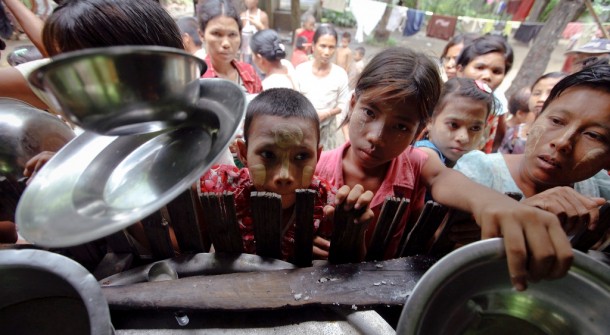A planned emergency meeting of foreign ministers from the Association of Southeast Asian Nations (Asean) to address the aftermath of recent communal violence in Arakan State was called off last week after Burma sternly rejected the regional grouping’s involvement, The Irrawaddy has learned.
In a letter addressed to the Asean foreign ministers dated Aug. 10, Cambodian Foreign Minister Nor Namhong, whose country is the current chair of Asean, called for an emergency meeting in Phnom Penh on Aug. 14 to discuss what he described as the “humanitarian crisis” in Arakan State.
However, in a reply also dated Aug. 10, Burmese Foreign Minister Wunna Maung Lwin categorically rejected the proposal, saying that the situation in Arakan State did not constitute a humanitarian crisis or “a cultural and religious issue.”
“As we had clearly stated in our press release of 30 July 2012, the incidents in Rakhine [Arakan] State is purely an inter-communal violence,” he wrote, adding that the meeting would be “contrary to the fundamental principle of non-interference in internal affairs of an Asean Member State.”
Asean has been noticeably low-key in its response to clashes that broke out between Arakanese Buddhists and Rohingya Muslims in early June, leaving dozens dead and tens of thousands homeless. However, an international outcry—including large protests in Indonesia and Malaysia over the alleged ethnic cleansing of Rohingyas—has increased pressure on the bloc to act.
Besides being constrained by its policy of non-interference, Asean may also be wary of being seen as taking sides in the dispute, which many Burmese say has been distorted to portray the Rohingya as the sole victims in a conflict that has devastated many lives on both sides.
To allay such concerns, the grouping has proposed “a humanitarian engagement” similar to that organized by Asean in the wake of Cyclone Nargis, which killed more than 140,000 people in Burma’s Irrawaddy Delta in May 2008, according to a senior Asean official who spoke on condition of anonymity.
However, even the role of humanitarian aid workers in the Arakan clashes has been a highly contentious issue, with a number of NGO workers and staff from the UN refugee relief agency UNHCR being arrested for allegedly participating in the riots in June.
According to sources in the northern Arakan townships of Sittwe, Maungdaw and Buthidaung, however, nine of these aid workers were released yesterday, in the latest sign that the government is responding to criticism of its handling of the situation.
Weeks after the violence began, President Thein Sein told visiting UNHCR officials that the “best solution” to the problem was to put the Rohingya in camps administered by the UN agency and arrange for their resettlement in third countries. More recently, however, he told Voice of America that Burma would try to improve the education of the Rohingyas to ease tensions.
The government also allowed the UN special human rights envoy for Burma, Tomas Ojea Quintana, and Turkey’s foreign minster, Ahmet Davutoglu, to visit the strife-torn region this month, and recently gave a green light to the Organization of Islamic Cooperation to assist refugees in Arakan State.
Noting these developments, the senior Asean official acknowledged that “it looks rather strange [for Asean] to be absent on the issue.”
“Asean, aspiring to be a ‘community of caring and sharing societies,’ is conspicuously absent from the scene. How can we explain this to the international community?”

















